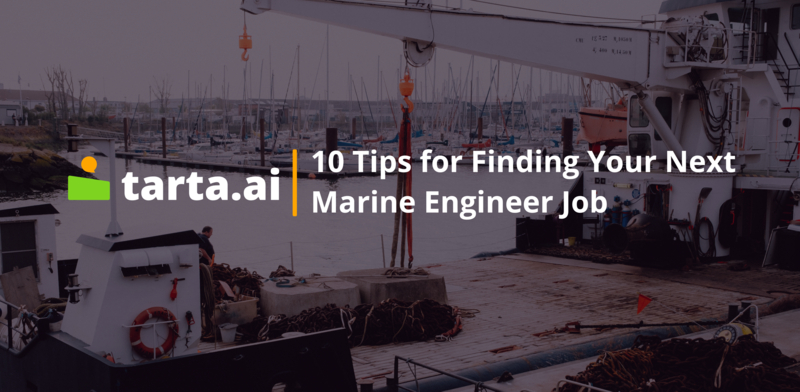10 Tips for Finding Your Next Marine Engineer Job

As a marine engineer, you know that finding a job in your field can be competitive. However, with the right approach, you can increase your chances of finding the perfect job opportunity. Here are six tips to help you find your next marine engineer job:
1. Update your resume
Your resume is the first impression that potential employers will have of you. Make sure that it is up-to-date and highlights your education, experience, and skills relevant to marine engineering. Tailor your resume to each job posting to increase your chances of getting noticed.
2. Utilize job search sites
There are many job search websites dedicated to engineering jobs, including marine engineering. Utilize these sites to your advantage and set up job alerts so that you are informed of new job postings as soon as they become available. Some popular job sites for marine engineers include LinkedIn.
3. Network with industry professionals
Networking is a powerful tool in finding your next marine engineer job. Connect with marine engineering professionals through LinkedIn or other professional networking sites. Attend industry events and conferences to expand your network and learn about job openings before they are advertised.
4. Research potential employers
Before applying for a job, research the company to see if it's a good fit for you. Look at their company culture, values, and mission to ensure that they align with your own. Make sure to read employee reviews on websites like Tarta.ai to get a better understanding of what it's like to work there.
5. Apply directly to marine companies
Many marine companies, especially those involved in shipbuilding and repair, have a constant need for marine engineers. Research companies that are in your area of expertise and submit your resume directly to them.
6. Utilize professional associations
Professional associations, such as the Society of Naval Architects and Marine Engineers (SNAME) and the American Society of Naval Engineers (ASNE), often have job boards that list job opportunities in the marine engineering field. Joining these organizations can also provide networking opportunities and access to industry events.
On average, it takes around 12 weeks for a new marine engineer to become settled and show total productivity levels at work.
On average, it takes around 12 weeks for a new marine engineer to become settled and show total productivity levels at work.
7. Be flexible
Be open to considering job opportunities in different locations or on different types of vessels. Expanding your search criteria can increase your chances of finding a job that is a good fit for you.
8. Consider temp agencies and headhunters
Temp agencies and headhunters can help connect you with marine engineering job opportunities. These organizations work with many companies and can match you with job openings that are a good fit for your skills and experience.
9. Consider freelance or contract work
If you are having trouble finding a full-time marine engineering job, consider freelance or contract work. Freelance and contract work can provide you with the opportunity to gain valuable experience and make connections in the industry that may lead to a full-time job in the future.
10. Apply for multiple jobs
Don't put all your eggs in one basket. Apply for multiple job openings to increase your chances of landing a job. Make sure to tailor your resume and cover letter to each job posting to show that you are a good fit for the position.
Finding your next marine engineer job through job sites is a combination of effective job searching techniques, networking, and a well-prepared resume. Use these tips and you'll be on your way to finding your dream job in no time. Good luck!
- Update your resume and tailor it to each job posting to increase your chances of getting noticed.
- Utilize job search sites and set up job alerts to stay informed of new job postings.
- Network with industry professionals through professional networking sites.
- Research potential employers to ensure that their company culture, values, and mission align with your own.
- Be flexible and consider job opportunities in different locations or on different types of vessels.
- Utilize professional associations, temp agencies, and headhunters to connect with marine engineering job opportunities.
- Consider freelance or contract work to gain valuable experience and make connections in the industry.
- Apply for multiple job openings to increase your chances of landing a job.
FAQ
Should I consider freelance or contract work as a marine engineer?
Freelance and contract work can provide you with the opportunity to gain valuable experience and make connections in the industry that may lead to a full-time job in the future.
How can I increase my chances of finding a job as a marine engineer?
By updating your resume, utilizing job search sites, networking with industry professionals, researching potential employers, being flexible, considering temp agencies and headhunters, and applying for multiple jobs.
What qualifications do I need to become a marine engineer?
You typically need a bachelor's degree in marine engineering, mechanical engineering, or a related field. Some marine engineering positions may also require professional certification.
Where can I find job listings for marine engineers?
You can search for marine engineering jobs on general job search websites like Tarta.ai and LinkedIn, as well as specialized websites like Maritime Jobs and Marine Industry Careers.